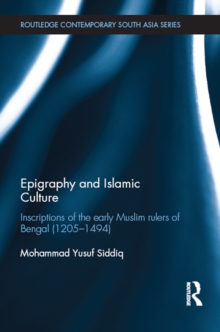
Tamil Nationalism in Sri Lanka : Counter-history as War after the Tamil Tigers EPUB
by A.R. Rajah
Part of the Routledge Contemporary South Asia Series series
EPUB
Description
This book examines Tamil nationalism in Sri Lanka and provides insights on how Tamil nationalism has survived the destruction of the Tamil Tigers after May 2009 and continues to thrive, despite the absence of a charismatic leadership to lead it or a centralised organisation to mobilise the Tamils along ethnic nationalistic lines.
The ethnic nationalist ideology shaped up by the Tamil Tigers continues to remain the driving force of the Tamil polity in Sri Lanka and the Diaspora. Using a Foucauldian counter-historical theoretical framework, the author analyses and offers answers to these questions: What is keeping Tamil nationalism alive despite the demise of the Tamil Tigers over a decade ago? Why do many Tamils in Sri Lanka and abroad refuse to accept a Sri Lankan political identity? How are Tamils able to continue on a nationalist path despite the absence of a unified political leadership? The book argues that Tamil nationalism has survived the latter's destruction because it has become counter-historical. It is this that has allowed, despite the internecine rivalries between Tamil political parties and Diaspora groups, the Tamil nationalist spirit to remain alive. The author also suggests that counter-history has, for many Tamil political parties and Diaspora groups, become the means of waging war, other than through an armed struggle, against the Sri Lankan state. Based on field research, interviews and documentary analysis, the book provides empirical and unique insights on Foucault's thesis that power is multifaceted and can function in the absence of centralised mechanisms.
This book will be of interest to researchers in the fields of Politics and International Relations, in particular those working on ethnic nationalism, post-armed conflict peacebuilding/conflict resolution, the politics in Sri Lanka, diaspora politics and Foucault.
Information
-
Download - Immediately Available
- Format:EPUB
- Pages:186 pages
- Publisher:Taylor & Francis
- Publication Date:31/10/2022
- Category:
- ISBN:9781000779455
Other Formats
- PDF from £35.99
Information
-
Download - Immediately Available
- Format:EPUB
- Pages:186 pages
- Publisher:Taylor & Francis
- Publication Date:31/10/2022
- Category:
- ISBN:9781000779455










